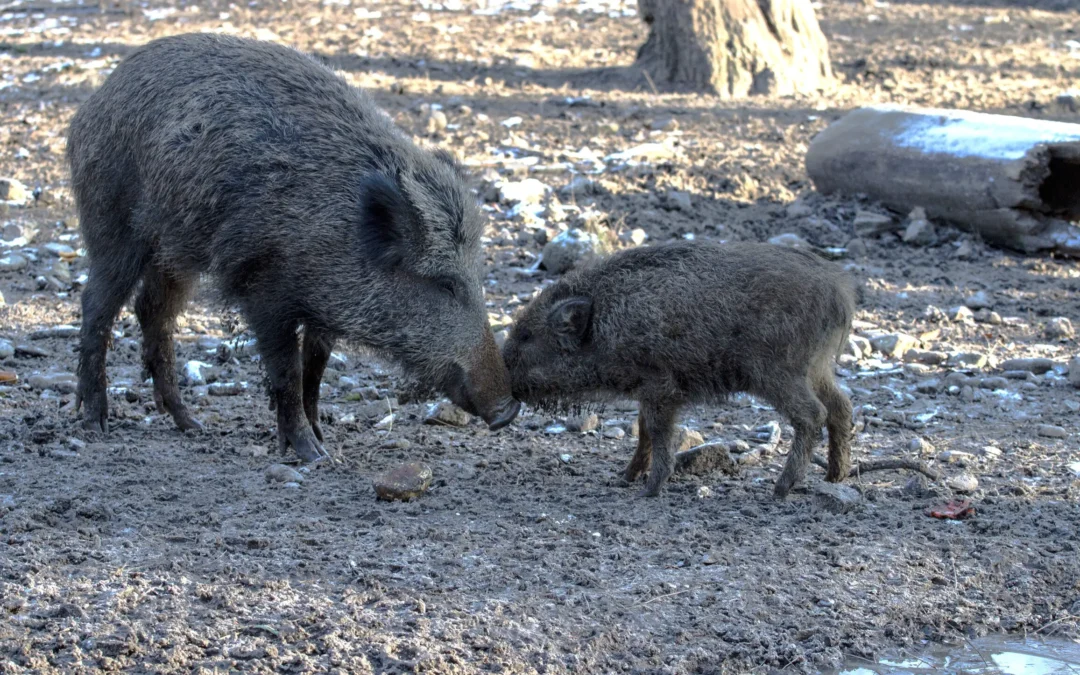Local officials in Poland have ordered the killing of over 6,500 wild boars in an effort to prevent the spread of the virus that causes African swine fever (ASF). Activists, however, say that such culls are ineffective and other measures should be taken instead.
Culling orders have been issued by three of Poland’s 16 provinces – West Pomerania (where 4,557 animals are to be killed), Lubusz (1,078) and Lower Silesia (899) – reports the Dziennik news website. The animals are to be killed by March.
“The provincial veterinary officer asked me to issue a regulation for a sanitary culling,” Maciej Awiżeń, governor of Lower Silesia, told Radio Wrocław. “It must be a shooting related to minimising the risk of spreading the ASF virus. I would like to remind you that this virus does not pose a threat to people.”
Wojewodowie wydali rozporządzenia, skazując na śmierć kilka tysięcy dzików. Powodem ma być wirus ASF. Eksperci podkreślają jednak, że choroby nie da się zdusić przez odstrzał. W sprawie głos zabrali @NiechZyja i @RobertMaslak – pisze @justynawitczak_ https://t.co/C4RFLUZxso
— Dziennik.pl (@DziennikPL) February 6, 2024
The main reason for concern about ASF in wild boars is that the virus can spread to domestic pigs. However, Robert Maślak, a biologist at the University of Wrocław, argues that experience has shown that culling boars does not slow the spread of the virus.
Over 300,000 boars have been killed in “sanitary shootings” in Poland since 2019, he notes, but only around 2-3% were found to have been infected with the ASF virus.
“It is not boars but humans who transmit the virus to farms,” says Maślak. “The only effective method of protecting pigs is biosecurity,” he adds, such as by ensuring the safe removal of the carcasses of boars who have died from ASF.
Sezon łowiecki* 2019/2020
zabitych 414 822 dzików, w tym 62 457 w ramach odstrzałów sanitarnych;Sezon łowiecki 2020/2021
zabitych 380 741 dzików, w tym 125 491 w ramach odstrzałów sanitarnych;Sezon łowiecki 2021/2022
zabitych 108 301 dzików, w tym 66 210 w ramach… pic.twitter.com/cFRKIyjlLO— Robert Maślak (@RobertMaslak) February 5, 2024
Tomek Zdrojewski from the Niech Żyją (Let Them Live) foundation, which campaigns against hunting and culling, told Dziennik that ASF is often spread by hunters who shoot infected boars and then transport their carcasses elsewhere without taking proper sanitary precautions.
He notes that in 2018 Poland’s state audit office published a report identifying failings in how veterinary inspectors monitored compliance with biosecurity rules on pig farms.
The head of the foundation Izabela Kadłucka, told Dziennik that they would file complaints to administrative courts against provincial governors’ decisions to order further culls.
Last week, the agriculture ministry published a new draft regulation designed to counter the spread of ASF. It would impose stricter obligations for farmers to keep inventories of their pigs and to ensure that they do not come into contact with other animals.
There would also be tougher sanitary requirements for areas in which pigs are kept, vehicles in which they are transported, and workers who have contact with them, reports agricultural news outlet AgroProfil.
The measures would ban carcasses of boars from being brought onto farms and prevent anyone involved in hunting or trapping of boars from having access to pigs for 48 hours.
Kraków has appealed to residents to stop feeding wild boars as growing numbers of the animals roam the streets.
The authorities estimate that up to 1,500 boars now live in the city, which is ten times the normal figure https://t.co/AkvbvVzKs3
— Notes from Poland 🇵🇱 (@notesfrompoland) November 12, 2023

Notes from Poland is run by a small editorial team and published by an independent, non-profit foundation that is funded through donations from our readers. We cannot do what we do without your support.

Daniel Tilles is editor-in-chief of Notes from Poland. He has written on Polish affairs for a wide range of publications, including Foreign Policy, POLITICO Europe, EUobserver and Dziennik Gazeta Prawna.



















